Kallista Bonawitz
Confidential Federated Computations
Apr 16, 2024Abstract:Federated Learning and Analytics (FLA) have seen widespread adoption by technology platforms for processing sensitive on-device data. However, basic FLA systems have privacy limitations: they do not necessarily require anonymization mechanisms like differential privacy (DP), and provide limited protections against a potentially malicious service provider. Adding DP to a basic FLA system currently requires either adding excessive noise to each device's updates, or assuming an honest service provider that correctly implements the mechanism and only uses the privatized outputs. Secure multiparty computation (SMPC) -based oblivious aggregations can limit the service provider's access to individual user updates and improve DP tradeoffs, but the tradeoffs are still suboptimal, and they suffer from scalability challenges and susceptibility to Sybil attacks. This paper introduces a novel system architecture that leverages trusted execution environments (TEEs) and open-sourcing to both ensure confidentiality of server-side computations and provide externally verifiable privacy properties, bolstering the robustness and trustworthiness of private federated computations.
Federated Select: A Primitive for Communication- and Memory-Efficient Federated Learning
Aug 19, 2022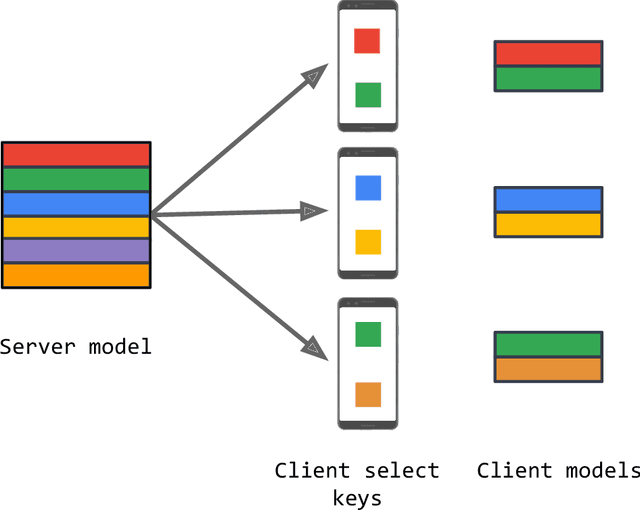


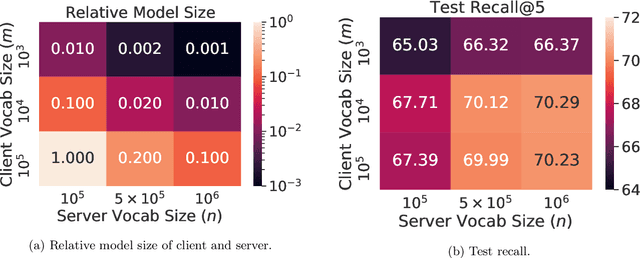
Abstract:Federated learning (FL) is a framework for machine learning across heterogeneous client devices in a privacy-preserving fashion. To date, most FL algorithms learn a "global" server model across multiple rounds. At each round, the same server model is broadcast to all participating clients, updated locally, and then aggregated across clients. In this work, we propose a more general procedure in which clients "select" what values are sent to them. Notably, this allows clients to operate on smaller, data-dependent slices. In order to make this practical, we outline a primitive, federated select, which enables client-specific selection in realistic FL systems. We discuss how to use federated select for model training and show that it can lead to drastic reductions in communication and client memory usage, potentially enabling the training of models too large to fit on-device. We also discuss the implications of federated select on privacy and trust, which in turn affect possible system constraints and design. Finally, we discuss open questions concerning model architectures, privacy-preserving technologies, and practical FL systems.
Towards Sparse Federated Analytics: Location Heatmaps under Distributed Differential Privacy with Secure Aggregation
Nov 03, 2021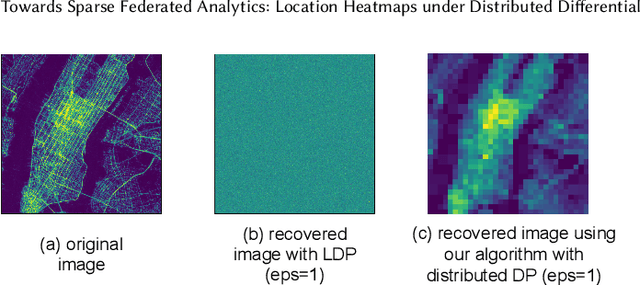
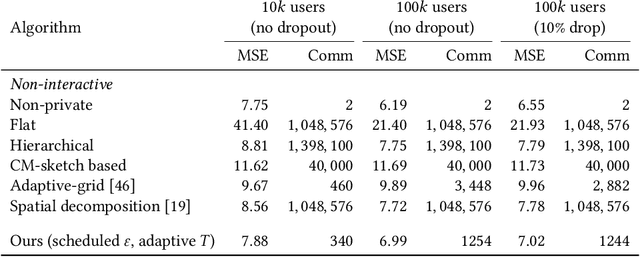
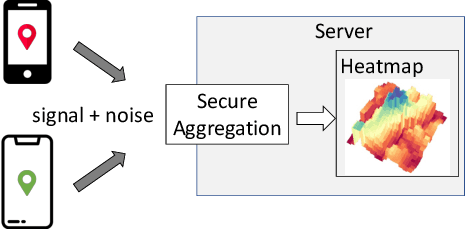

Abstract:We design a scalable algorithm to privately generate location heatmaps over decentralized data from millions of user devices. It aims to ensure differential privacy before data becomes visible to a service provider while maintaining high data accuracy and minimizing resource consumption on users' devices. To achieve this, we revisit the distributed differential privacy concept based on recent results in the secure multiparty computation field and design a scalable and adaptive distributed differential privacy approach for location analytics. Evaluation on public location datasets shows that this approach successfully generates metropolitan-scale heatmaps from millions of user samples with a worst-case client communication overhead that is significantly smaller than existing state-of-the-art private protocols of similar accuracy.
 Add to Chrome
Add to Chrome Add to Firefox
Add to Firefox Add to Edge
Add to Edge